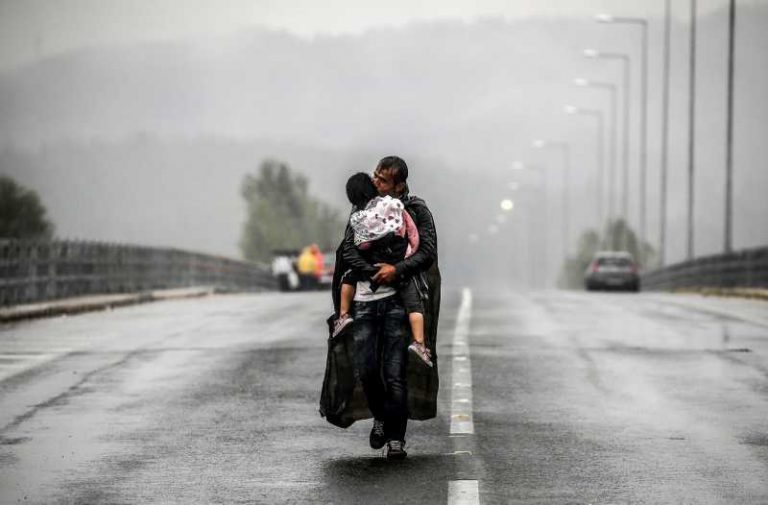Acclaimed photojournalist Yannis Behrakis is this year’s recipient of one of the highest merits in the industry, the Pulitzer Prize, for the way he and his Reuters’ team of photographers covered the ongoing refugee crisis in the Aegean. This is the third award for the news agency, which shared the honour in the category of Breaking News Photography, along with the photo team of The New York Times.
Behrakis, who is Reuters’ chief photographer for Greece and Cyprus, was joined by Alkis Konstantinidis and Alexandros Avramidis in a statement: “We showed the world what was going on, and the world cared. It showed that humanity is still alive.
“We allowed for these unfortunate people’s voice to be heard. Now with a Pulitzer, we feel that our work has been professionally recognised”.

Yannis Behrakis has been part of the Reuters photojournalist team since 1987; he has covered a series of major world events, from the death of Ayatollah Khomeini in Iran to the dissolution of Yugoslavia and the political turmoil in the Balkans and eastern European region. He has been a war correspondent in Croatia, Kosovo, Chechnya, Somalia, Afghanistan, and Sierra Leone, where he was wounded in an ambush in 2000. He has covered the Israeli-Palestinian conflict and was appointed chief of Reuters’ office in Jerusalem for a year in 2008, before returning to Greece to cover the financial crisis.

A retrospective of Behrakis’ work will be presented in a multimedia concert in the Athens Concert Hall on Monday 25 April. His images will be projected during a solo piano rendition of Joseph Haydn’s seminal The Seven Last Words of Our Saviour On the Cross. Performed by acclaimed pianist Nikos Laaris, the event is part of the concert hall’s Easter program; all proceeds will go to Doctors Without Borders, to support the organisation’s work on the refugee crisis.
Neos Kosmos was at the press conference for this event and managed to speak with the photojournalist, who could not hide his excitement at being the first Greek to receive the Pulitzer Prize, a distinction he wants to use as a means to boost morale in his country, as it copes with the combined effects of the financial and the refugee crisis.
“This award brings joy to our country,” he told Neos Kosmos, praising his Reuters’ team, which is comprised of young photographers, many of whom are his former students.
“They all worked with passion and devotion so that we could give voice to the despair of the refugees,” he said.
Stressing his deep connection to Australia and the Greek community, he spoke of a tattoo he got as a souvenir while on vacation in Byron Bay.
“I love Australia, it is a magical place, a continent full of potential,” he said. “My last visit to Australia was in 2000 for the Olympic Games, after which I stayed for a holiday. I went everywhere.”
Sharing his fond memories of the way he was treated by Greek Australians, he sends a message of love and gratitude for their actions towards the motherland during the past six years of financial crisis: “Thank you for your support!”









